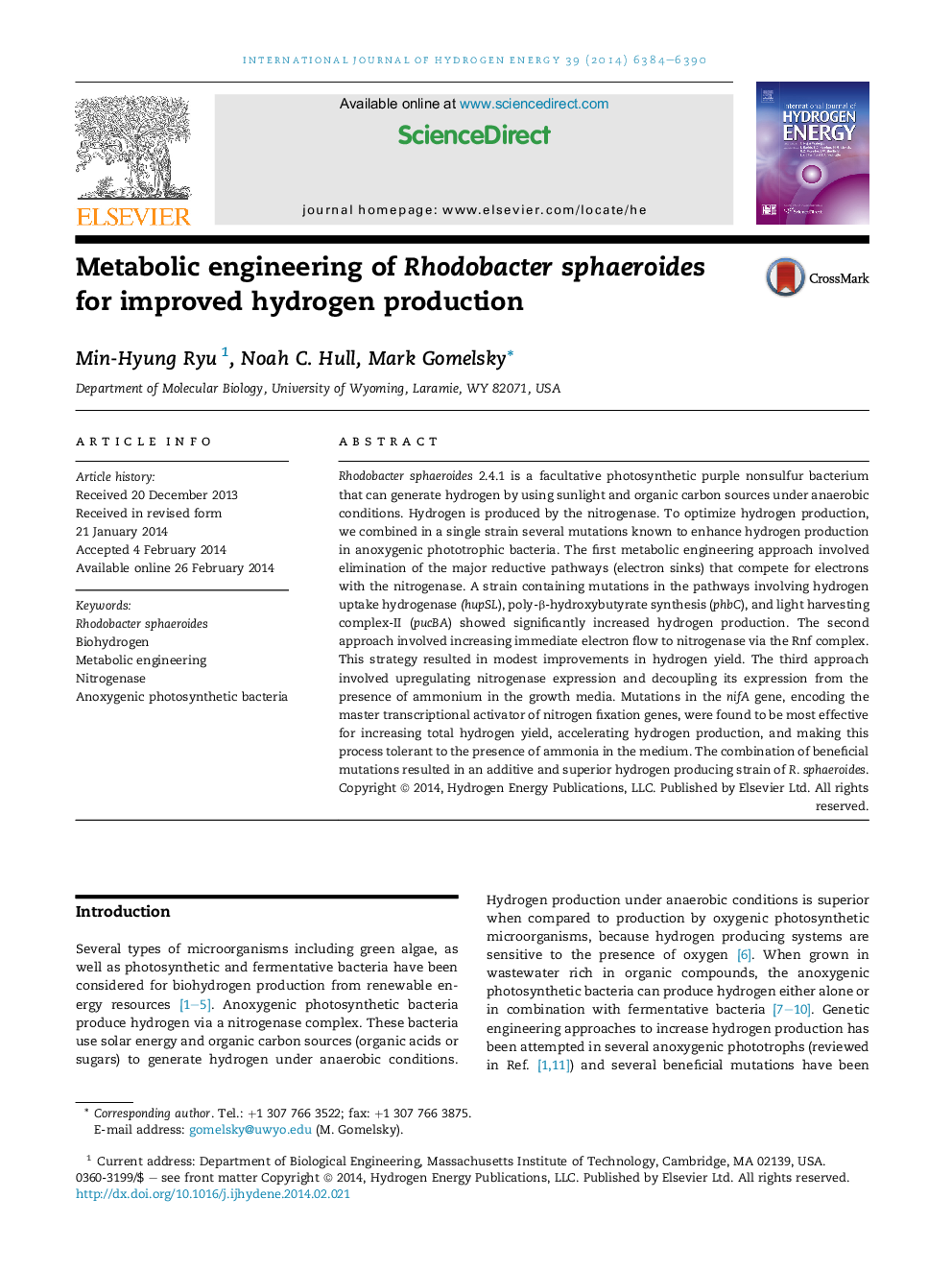| Article ID | Journal | Published Year | Pages | File Type |
|---|---|---|---|---|
| 1272831 | International Journal of Hydrogen Energy | 2014 | 7 Pages |
•Deletion of electron sinks enhances hydrogen production in Rhodobacter sphaeroides.•A NifA L62Q mutation accelerates hydrogen production and increases yield.•A NifA L62Q mutation makes hydrogen production tolerant to the presence of ammonium.
Rhodobacter sphaeroides 2.4.1 is a facultative photosynthetic purple nonsulfur bacterium that can generate hydrogen by using sunlight and organic carbon sources under anaerobic conditions. Hydrogen is produced by the nitrogenase. To optimize hydrogen production, we combined in a single strain several mutations known to enhance hydrogen production in anoxygenic phototrophic bacteria. The first metabolic engineering approach involved elimination of the major reductive pathways (electron sinks) that compete for electrons with the nitrogenase. A strain containing mutations in the pathways involving hydrogen uptake hydrogenase (hupSL), poly-β-hydroxybutyrate synthesis (phbC), and light harvesting complex-II (pucBA) showed significantly increased hydrogen production. The second approach involved increasing immediate electron flow to nitrogenase via the Rnf complex. This strategy resulted in modest improvements in hydrogen yield. The third approach involved upregulating nitrogenase expression and decoupling its expression from the presence of ammonium in the growth media. Mutations in the nifA gene, encoding the master transcriptional activator of nitrogen fixation genes, were found to be most effective for increasing total hydrogen yield, accelerating hydrogen production, and making this process tolerant to the presence of ammonia in the medium. The combination of beneficial mutations resulted in an additive and superior hydrogen producing strain of R. sphaeroides.
Graphical abstractFigure optionsDownload full-size imageDownload as PowerPoint slide
